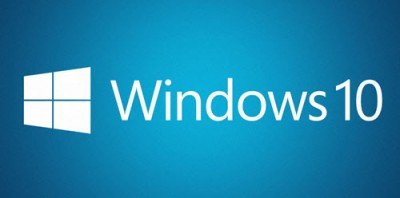With new processors and next Gen devices at the onset, Microsoft has urged its Enterprise users to upgrade to Windows 10 to enjoy maximum performance. As a matter of fact, if you own any of the Intel’s 6th generation processors (also known as Skylake) with Windows 7 or Windows 8.1, Microsoft is asking you to upgrade to Windows 10 in the next 18 months.

Post July 17, 2017, Microsoft will address only the most critical Windows 7 and Windows 8.1 security updates on Skylake devices. These updates will be released only if they do not risk the reliability or compatibility of the Windows 7/8.1 platform on other devices.
Until now, Microsoft has been seen as a company that favors long term support for older platforms, however, now in its bid to make Windows 10 successful as early as possible the company seems to have reversed its policy saying that upcoming new processors will be supported just by Windows 10.
Windows 7 and Windows 8.1 are old for modern hardware
Microsoft renewed efforts of pushing Windows 10 isn’t really something going to bother users buying a new PC as Windows 10 would come as a default operating system. However, the real tussle is for the Enterprises who have to deal with numerous issues starting from user rights, driver support, and In house software compatibility when thinking about Operating system upgrade. A messed up example of when it happened before was at the time of Windows XP which users could not do away with even after the support was withdrawn.
Terry Myerson, Microsoft’s Executive Vice President of the Windows and Devices Group, mentioned on the Windows blog,
Going forward, as new silicon generations are introduced, they will require the latest Windows platform at that time for support. This enables us to focus on deep integration between Windows and the silicon, while maintaining maximum reliability and compatibility with previous generations of platform and silicon. For example, Windows 10 will be the only supported Windows platform on Intel’s upcoming “Kaby Lake” silicon, Qualcomm’s upcoming “8996” silicon, and AMD’s upcoming “Bristol Ridge” silicon.
18 months may not be enough for the business users to complete the upgrade and although Microsoft would continue to support Windows 7 through January 14, 2020 and Windows 8.1 through January 10, 2023, any new hardware bought would just not be useful.
Another question this Microsoft approach brings for its device partners, is that if Enterprises are not able to buy new hardware because of operating system compatibility issue, won’t this have an effect on the sales of the new devices?
It seems some enterprise software vendors are trying to help with that last bit, “…won’t this have an effect on the sales of new devices”, via updating enterprise-grade apps to the latest and greatest hardware requirements while delivering zero to slim enhancements to purposes of the apps.
For instance, there’s a popular color grading system the immediately prior version of which ran wonderfully on a Dell with Windows 8.1 and dual core i5/modern GPU compatible chipset; the current version of the same grader still runs on that PC upgraded to Windows 10, but now offers a tiny workspace viewer, limit to work on SD/HD, and color “wheels” now turned to sliders; having opportunity, I put the new version on a Boxx device and it had normal appearances and the same features as its prior version. The only difference is, if I want to get offline mobile use now, I have to buy either a Mac which can run OSX Yosemite or a laptop with at least i7 cores and NVIDIA card (good thing I also have a Dell Precision series!).
As one involved with vfx/gfx, I wonder if all the pressures to upgrade hardware will instead lead to increased use of cloud-based editors (such as Forscene) which can run from Windows 7/8.1 clients, and expansion of cloud services in other industries. Thanks for the story, cheers!
first it were home users and now microsoft is forcing windows 10 to enterprise users also. Microsoft is doing nothing but devaluing its brand image by forcing an operating system and not giving a chance to choosing it.
Thanks Dan for your comments. Your inputs are always so informative to read.
I do have the same opinion. thanks
This is a great article… as I read it, I think about the following…
We have ask about Microsoft’s real agenda. The case of distrust is becoming a norm in the business setting.
As I travel to different customer sites, executives are stressed by being ‘forced’ into Microsoft products that fit Microsoft’s strategy and not their own. Along with being ‘urged’ to upgrade the enterprise to Windows 10, the other stress point is using OneDrive in the corporate setting. For some, OneDrive resides outside of the corporate network. By doing this, you are relinquishing control of your data and intellectual content based on Microsoft’s ‘Terms and Conditions’ and this is not negotiable. Companies are starting to realize that they are loosing control of what is on the desktop along with their intellectual content and it all starts with the desktop OS. In order to secure content, companies need to explore real alternatives other than Microsoft.